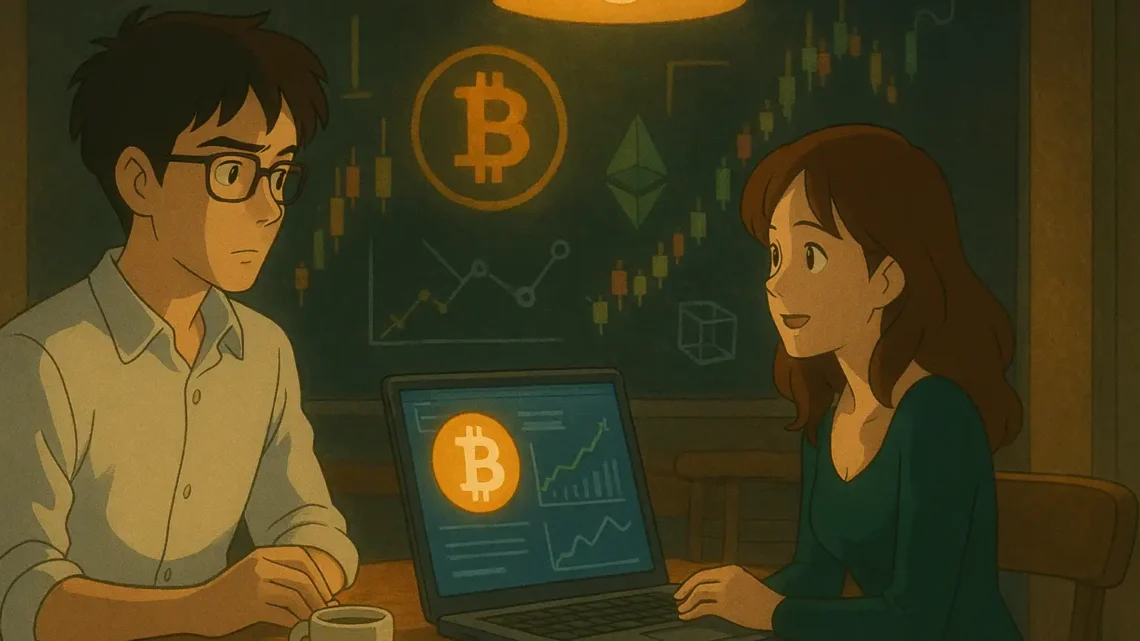
The Night I Lost $50,000 and Found Myself in the Blockchain
Two weeks ago, I thought I was the next crypto millionaire.
I had just flipped a few Ethereum tokens I bought at $1,500 when they hit $3,000.
Trending Now!!:
My crypto portfolio looked beautiful — numbers climbing, charts glowing green, like fireworks on Binance. My phone screen was the color of money.
I was sitting in a neon-lit café in Lekki, one of those tech-themed places where everyone pretends to be building the next Web3 startup but is really just checking CoinMarketCap.
The barista already knew my order: an iced mocha and Wi-Fi strong enough to run blockchain transactions.
Then my friend Timi slid into the seat across from me. Hoodie, AirPods, and that grin that meant trouble.
“Bro, have you heard of LunarFi?” he asked.
I blinked. “No, what’s that — another DeFi project?”
He nodded. “Exactly. Bro, they’re launching a token presale tonight. Early investors are cashing out 10x in hours. It’s built on Solana — low gas fees, high yield. You should check it out.”
He showed me a slick website — animations of astronauts floating in space, promises of “next-gen decentralized finance,” and testimonials that looked a bit too perfect.
But I didn’t care. FOMO (Fear Of Missing Out) is stronger than logic when your last trade went right.
I muttered, “I’ll just put in $5k. See what happens.”
By midnight, I had transferred $5,000 in USDT from my MetaMask wallet to an address I didn’t verify properly.
By 3 AM, it was gone.
The site vanished. The Telegram group disappeared. Even Timi’s number stopped going through.
“Wait—what?” I said out loud, refreshing the page like it owed me money.
My stomach dropped. My hands went cold. I stared at my screen, realizing the blockchain doesn’t do “refunds.”
Crypto had just humbled me.
For days, I avoided everyone. Even my mom’s “Good morning” texts felt like judgment. I started Googling “how to recover scammed crypto funds,” diving deep into blockchain forensics and smart contract auditing.
That’s when I met her — Naya.
She was in a crypto recovery Discord group, username “@BlockQueen.” She sent a message:
“You can’t undo a transaction, but you can trace it. Every wallet leaves a fingerprint.”
That line hooked me. We started chatting, analyzing wallet addresses, following the scam’s digital trail. It felt like hacking for justice — Web3 vigilantes.
Soon, we found something — one of the scammer’s wallets linked to a larger one known for rug pulls on DeFi Pulse. We even contacted a blockchain security firm that confirmed our suspicion.
Naya said, “You’ve got a sharp eye, you know? Most people just give up.”
I laughed. “Maybe losing $5k builds character.”
Days turned into nights. Our chats turned into calls. She was smart, mysterious, always saying things like,
“Blockchain isn’t just about money. It’s about transparency — trust without trusting.”
I think I started to like her. Not just as a crypto partner, but… you know, more.
Then one night, she sent me a link.
“Join this private node I’m running. I can show you where the funds were really moved.”
I hesitated. Something felt off. But curiosity — and maybe infatuation — won. I clicked.
My wallet disconnected instantly.
I tried logging in again.
Password invalid.
Security phrase — gone.
All my remaining crypto — Bitcoin, ETH, Solana, even my NFTs — drained.
She wasn’t helping me trace the scam.
She was the scam.
I sat there, staring at the blinking cursor on my screen, laughing and crying at the same time. The irony was too much — I got scammed trying to recover from being scammed.
The blockchain was brutally fair — no emotions, no refunds, no mercy.
I walked out of the café that night, wind cutting through my hoodie, thinking about everything.
Then I remembered something Naya said:
“Blockchain isn’t about money. It’s about transparency.”
So I decided to make my story public. I shared every wallet address, every transaction hash, every mistake — on Reddit, X (Twitter), and Medium.
It blew up. Thousands of people commented, “Same thing happened to me.” A few even helped me file reports with Chainalysis and Interpol.
I didn’t get my money back — but something changed.
A blockchain startup in Dubai saw my post and hired me as a DeFi risk analyst. They said,
“We need people who understand what’s at stake.”
Now I spend my days helping others avoid what I went through — tracking scam wallets, building safer smart contracts, and teaching Gen Z how to invest smartly in crypto.
Sometimes I still think about Naya — or whatever her real name was.
But each time I open my crypto dashboard now, I whisper,
“Trust the code, not the person.”
And that, my friend, is how I lost $50,000 — and gained a future in blockchain technology.


